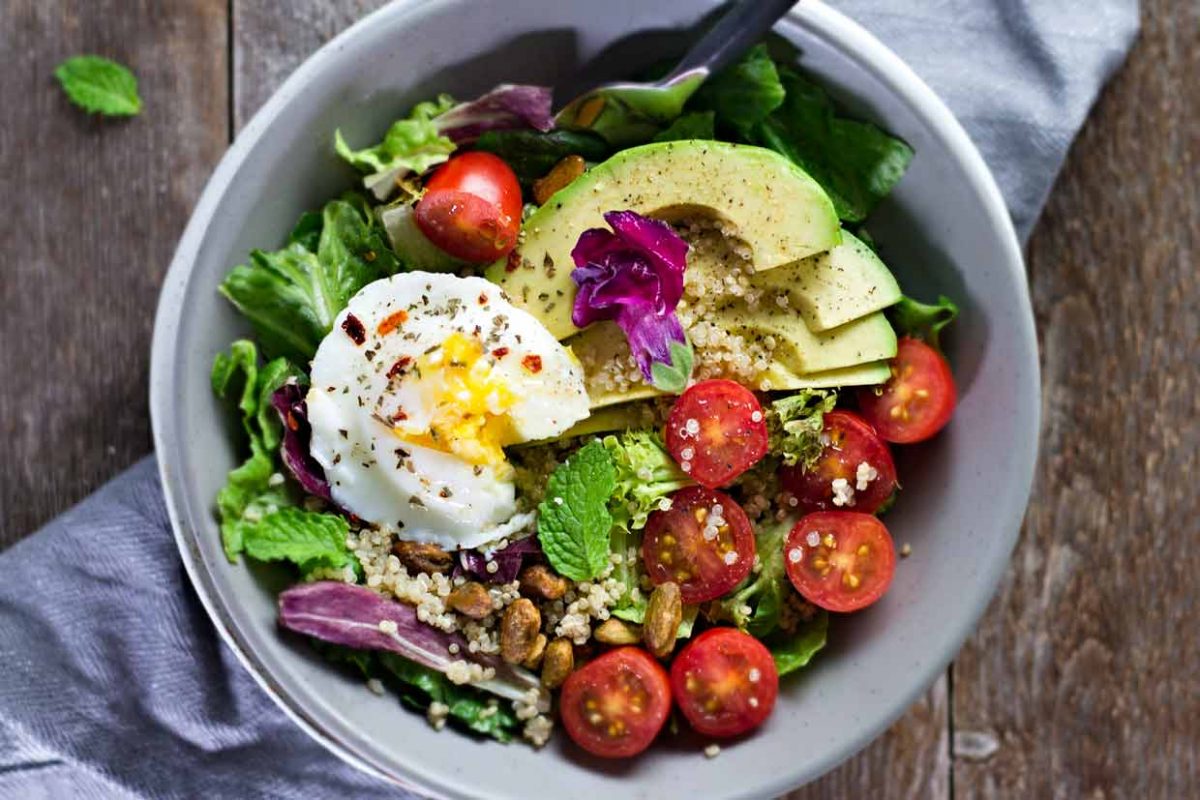If you’re like most people, when you hear “detox” the first thing that comes to mind is juice cleanse, starvation, or lemon cayenne water. I’m here to tell you that doing a detox doesn’t have to involve any of these things.
The popularity of cleanse and detox programs is overwhelming in today’s health world. With an increased understanding of the numerous toxins in our environment, we’ve developed a sense of urgency about maintaining (or reclaiming) our bodies as clean spaces. You may be asking yourself, should I do a cleanse?
While the best way to go about maintaining a clean body is to lead a clean lifestyle (one where much fewer toxins are invited into your body in the first place) this poses its own challenges (like chocolate!). Taking time away from processed foods and other “treats” is a great way to give your body a chance to catch up on ridding itself of toxins, and doesn’t have to involve drastic measures.
Signs Your Body is Asking for A Cleanse
There are many benefits to cleansing. Give your body a chance to clear the toxins already present and you’ll find that a lot of common ailments clear up.
Here are some signs that your body might be asking you for a cleanse. Do you experience:
- Long periods of low energy
- Tongue coating (a white-yellow)
- Mental confusion / Fogginess
- Gas / Bloating / Digestive distress
- Chronic pain/ arthritis
- Chemical sensitivity (alcohol, smells, etc.)
- Difficulty losing weight
- Acne, rosacea, skin breakouts
- Regular headaches/ migraines
This list is not exhaustive. There are so many benefits of cleaning up your act. For example, many of my clients who complete a detox have a brand new outlook and appreciation for food when they’ve finished. I’ve seen avid beer drinkers cut back, coffee lovers reduce to 1 cup of joe per day, and people reduce their portion sizes for good after realizing they could feel satisfied with much less.
Completing a detox protocol involves two parts: supporting your body in cleansing, and not getting in its way.
The human body is miraculous and capable of self-healing, if only we stay out of its way.
We get in our body’s way when we expose our systems to toxins in our food, environment, personal care products, medications, and even our emotions.
What Are You Cleansing Exactly?
The liver is our main detoxification organ. When our bodies are continuously exposed to toxins (which they are), our livers become burdened and work overtime to eliminate all of the toxins and residues that don’t belong in our bodies.
- Prescription Drugs – can stay in your system and cause effects after you’ve finished taking them.
- Food Additives – pesticides on produce, rancid oils in packaged or fried foods both take a toll on the liver. Not to mention food colourings, preservatives, and artificial flavours.
- Alcohol—a toxin that burdens the liver even in small amounts (that’s why hangovers are so terrible).
- Air pollution – furniture, carpets, perfume, plastics and industry release toxins into the air that are carried into our bodies when we breathe.
- Personal care products – conventional products like shampoo, body creams and deodorant (to name a few) contain toxins that disrupt the hormonal balance in your body.
What is a Detox Anyway?
A detox is a program that involves diet and lifestyle modifications. The aim is to give your body a break from toxins coming in, so that it can liberate toxins stored in the body, and flush them out of your system.
The key here is to give your body a break. This is why detox protocols often involve days of consuming liquids instead of solid food. It’s important that you still consume all the nutrients (vitamins, minerals, protein) your body needs during this time, even if the format is different.
A detox is not about deprivation. It’s a time to support your body in its natural cleansing processes.
Detoxing often involves calorie reduction, increased rest, and can be aided by herbal supplements. Whole food detox protocols are the safest option because you’re still taking in the nutrients your body needs to function, while gearing your food choices to support your body’s natural detoxification process.
Benefits of a Detox?
First, to see benefits from your detox (for it to really be effective) you’ll need to set a time period (10 days is good) to use a protocol that offers a change from your normal way of eating. This is very individual but could include things like eliminating coffee and alcohol, removing sugar and refined grains. Find a protocol (or ask a nutritionist for one) that will suit you and your lifestyle.
Completing a detox can have several benefits:
- Enhance immune function– regular detoxing helps strengthen the immune system so your body can fight off infection. Kiss that annual cold goodbye.
- Lose weight – our bodies store toxins in our fat cells. When we liberate the toxins, our bodies can let go of the excess weight as well.
- Increase energy – your body will run like a clean machine! Meaning every day functions and processes will happen a lot more easily.
- Boost mental clarity – when your liver is burdened you feel things like brain fog and fatigue. A detox is a quick path to mental alertness.
- Give you glowing skin– the skin is the biggest detox organ in the body. When toxins need to come out quick, your body pushes them out here in the form of redness, blemishes, etc.
- Prevent chronic disease – this is a big one for long-term health. Reducing your overall toxic load means your body can run more efficiently, making it easier for you to maintain balanced blood sugar, cognitive function and clean arteries.
- Prevent premature aging— an abundance of toxins leads to things like bags under the eyes, dull or red complexion and stiffness/aches/pains in your joints. When your body eliminates toxins properly, you will look and feel vibrant and youthful.
Should You Detox?
Given the amount of toxins and chemicals we’re exposed to daily (yes, even your yoga mat has chemicals) it’s safe to say that everyone could benefit from a detox. But should you detox?
In deciding whether to do a detox protocol, first look at your desired outcome. If you’re looking to achieve a cleaner, lighter, leaner body along with the many benefits listed above, a detox program would be a good option for you.
If, however you’re someone who struggles with overwhelming food cravings (sugar, salt, etc.), emotional eating, and history of disordered eating, be careful about undertaking a big dietary change (especially one that’s restrictive). Food is emotional. Sometimes the most loving way to treat your body is to take on what you’re ready for emotionally and physically.
A detox is meant as nutritional therapy to support your body in functioning optimally, and help you feel your best. Undertaking a protocol like this must come from a place of love (as opposed to guilt, shame or a should), for it to truly be beneficial.
Ask yourself, why am I drawn to a detox? Are you looking to lose weight because your self-worth is attached to the number on your scale? Do you want to change your eating habits because you’re “feeling fat” and think you’ll feel better about yourself if you lose weight?
So, should you detox? It depends on the energy driving you to consider it.
Only change motivated by loving intentions will produce a loving result. If you’re struggling with the questions above it might be because you need to unpack some of the thoughts around your relationship with food and yourself.
As a holistic nutritionist and coach, it is my job to help you with this. I’m here for you any time you want to dig a little deeper, or having a guide on your journey toward self-love and personal power.














